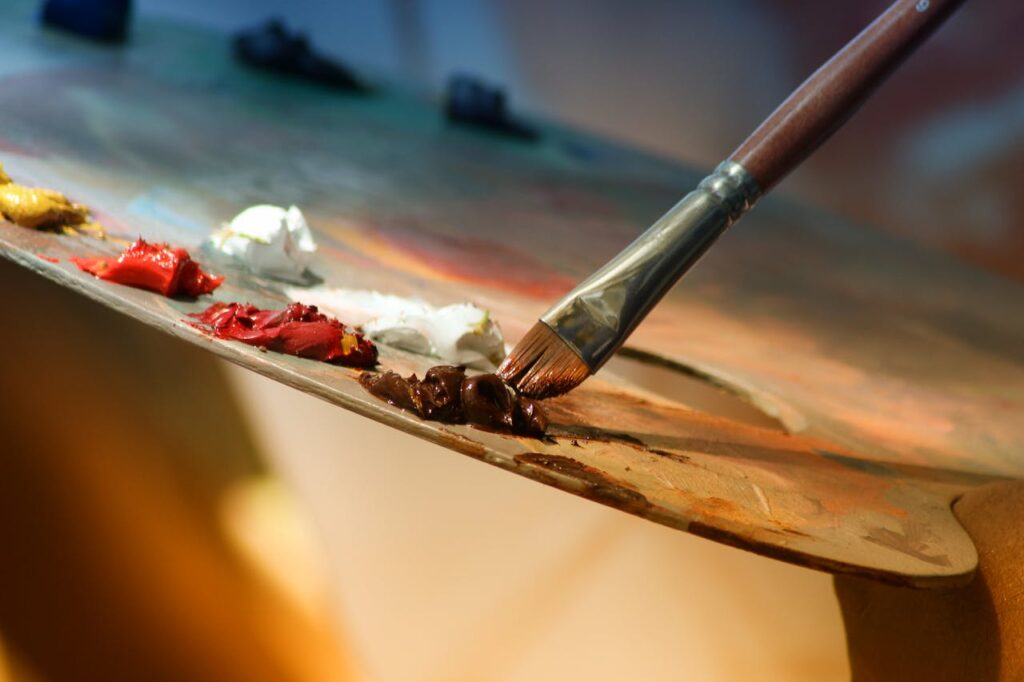
Starting a quest to discover your artistic abilities as a painter can be both exciting and intimidating. Regardless of experience level, the creative process is an ongoing one that involves self-discovery, experimentation, and progress. This article will explore a variety of approaches to developing and improving your painting skills, assisting you in realizing your complete creative potential through methods, ideas, and exercises.
Experimentation with Mediums and Techniques
The core of artistic inquiry is experimentation. You have access to a wide range of mediums and techniques as a painter, each with its special qualities and difficulties. Whatever the medium watercolors’ fluidity, oils’ richness, or acrylics’ versatility each offers a chance for experimentation and personal expression. Additionally, you can push the boundaries of your creativity by experimenting with other methods like glazing, impasto, and palette knife painting to add depth and texture to your work.
Exploring Themes and Subjects
Investigating various themes and topics can spark fresh ideas and inspire. Countless topics in the realm of painting are just waiting to be discovered, ranging from still life to landscapes, portraits, to abstract art. Think about pushing yourself to tackle subjects that will test your imagination and viewpoint. Exploring a variety of themes can enhance your artistic journey and extend your creative horizons, whether you’re painting the complexity of emotions, the beauty of nature, or the human form.
Studying Masterworks for Inspiration
Examining the works of great painters from history can be a great source of inspiration and knowledge about different artistic styles and approaches. Studying the paintings of masters like Claude Monet, Vincent van Gogh, and Leonardo da Vinci can teach you a lot about composition, color theory, and brushwork. To immerse yourself in historical masterpieces, set aside some time to visit art galleries and museums or browse internet collections. Master painters’ methods and techniques can provide you with insightful knowledge that will guide and enhance your artistic endeavors.
Embracing the Canvas
The blank canvas, however intimidating, represents an endless world of possibilities and promise. Use a white canvas as a space devoid of constraints or assumptions that will provide an aesthetic look to your painting. Let your imagination go wild on the canvas as you approach every painting with an open mind and a spirit of curiosity. Instead of being scared to fail or take chances, embrace every setback as a chance for learning and growth. To embrace the creative process and let your ideas and instincts lead you on your artistic path, you must embrace the white canvas.
Developing a Personal Style
Creating a signature look is essential to improving your painting abilities. Your distinct voice and vision, molded by your tastes, influences, and experiences, are reflected in your style. Even if looking at other artists’ work can inspire you, it’s crucial to have a unique style that makes you stand out. Try out several methods, themes, and strategies until you discover one that speaks to you personally. Over time, your style will continue to change and grow, reflecting your development and experimentation as an artist.
Seeking Feedback and Critique
Seeking feedback and critique from other artists, mentors, or teachers can provide useful perspectives and insights into your work. You can grow and improve as a painter by using constructive criticism to pinpoint your practice’s strong points and places for improvement. Accept criticism with an open mind, and don’t let it get to you personally. To promote growth and development on both sides, have positive conversations with other members of the creative community. Share concepts, methods, and criticism.
Cultivating a Consistent Practice
As a painter, consistency is essential for development. Establish painting as a regular hobby by setting aside time for artistic endeavors every day or every week. Whether you aim to complete a series of paintings, display your work in shows or contests, or simply learn a new technique, set goals and objectives for yourself. You’ll develop your creative intuition and craft comprehension in addition to your technical proficiency by committing to regular practice.
Conclusion
Painting is an artistic endeavor that requires self-reflection, experimentation, and development. You can reach your full creative potential and start a rewarding artistic journey by accepting experimentation, studying masterworks, embracing the white canvas, creating a personal style, receiving criticism, and maintaining a regular practice. Although an artist’s road is not always simple or uncomplicated, the journey itself bears the greatest rewards.


